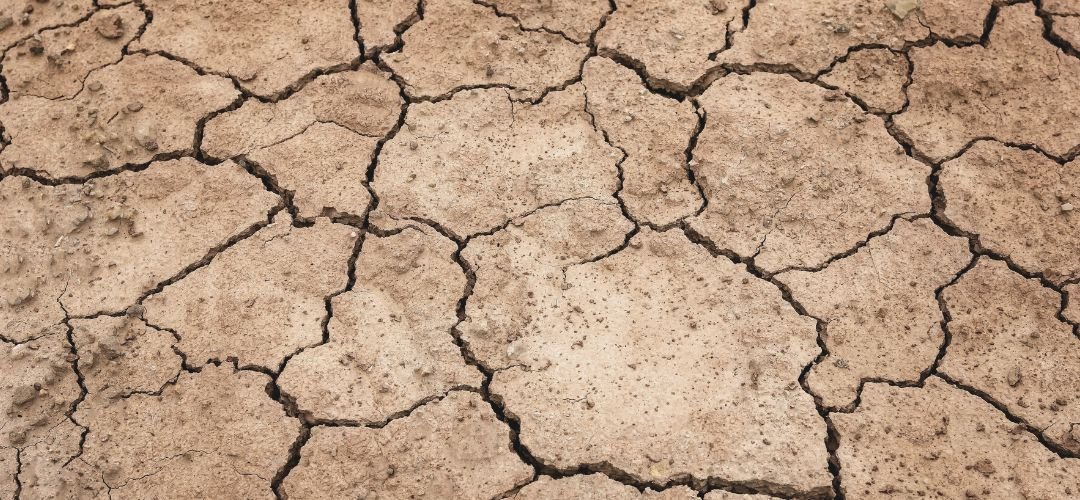I’ve been struggling to write this. I’ve been putting it off and dancing around it, pretending to be much busier than I actually am in order to avoid this blank screen with its demanding cursor.
I want to talk about unplowed ground. I want to talk about tilling up the hardened soil. I believe there is value in it. I believe that our tired, cold, and hardened hearts are desperate for fresh life. And I believe that it is possible!
Last night, as I pulled overgrown okra plants out of my garden, it occurred to me: the reason I’m avoiding this is because it is this place—where my heart and mind must agree on what to tell my fingertips to say, where I stare vulnerable at empty space and watch words fill the page—this place is an unplowed field of its own.
And so, I’m picking up the plow again. And it’s heavy. It’s unwieldy. It’s unfamiliar, and the hardest part is that it used to fit so comfortably in my hands.
This field was plowed once. I tended it with the Lord.
Unplowed ground is not the same as uncharted territory. It’s not wild and unknown. It’s not thrilling or exhilarating. Explorers are not boldly sailing off to “unplowed grounds.” No one comes here looking for excitement or adventure. But a farmer knows its potential.
Unplowed ground is a field in need of time and attention.
Farmers don’t plow once and plant forever. They plow over and over and over again. Farmers don’t see failure as they take the till to fallow ground.
They see once-fertile land that can be filled with fruit again.
And so, I’m here, and apparently so are you, staring at these fields that house our lives.
It’s not just the discipline of writing that I’ve neglected. It’s the disciplines that draw me into the presence of God, that position me to encounter Him and remind me of who He is. I’ve let things lie unspoken between me and God. I’ve let His Word sit closed. I’ve refused His comfort while demanding His answers.
The ground of my field is parched, cracked, dusty. There’s a section at the plant shop down the street called “Drought-Tolerant Plants,” and it strikes me that that’s about all the life that’s lasted in these long-neglected fields.
I haven’t picked the plow up before now because I’m worried it might not be able to pierce the hardened landscape.

I wonder if your ground is anything like mine.
I wonder what fruit it has yielded in the past. I wonder how you’ve found God faithful. I wonder what He’s done for you that you know only He could do. But I’m not naïve: I wonder what He hasn’t done that you know He could have. I wonder where you feel He’s failed you. I wonder what brought on the drought.
Sometimes perhaps we’ve just forsaken the plow because the fields became so familiar, so mundane; the scenery seemed so monotonous after a while.
I don’t think I’m the only one who longs to see life in these fields again.
Unless you’ve been comatose or have taken up residence on Mars, you haven’t escaped the hostile reality of life on this planet over the past two-and-a-half years. It has worn us down and worn us out, and many of our hearts have hardened so they wouldn’t break.
But it’s time to till the ground, and plowing begins with a breaking.
It begins with piercing what has ‘til now been undisturbed.
It begins with kneeling down in dirt.

In Genesis 2, before man had hands to plow the field, it was God Himself who knelt in dirt:
“Then the LORD God formed the man out of the dust from the ground and breathed the breath of life into his nostrils, and the man became a living being.” Genesis 2:7 (CSB)
God knelt. He formed from the dust. He breathed life. And then He planted a garden:
“The LORD God planted a garden in Eden, in the east, and there he placed the man he had formed…The LORD God took the man and placed him in the garden of Eden to work it and watch over it.” (Genesis 2:8, 15)
He planted a garden and He placed the man in it. And then God told Adam, long before sin slinked in, to work the ground and tend the garden.
The invitation remains. Work the field. Tend the garden. Till the soil and prepare this land for life again.
Yes, we are completely reliant on our Provider for every breath, but we have also been entrusted with these grounds. Walk around the land, survey the damage, take an account of the rocks and the weeds. Look around that life of yours—the One breathed out by the Creator, the One He’s perfectly positioned you within (Acts 17:26). Ask the Lord to walk it with you. Tell Him what’s gone wrong. Tell Him about that disappointment. Confide in Him about your doubts. Recall seasons when you felt nearer to Him.
Familiarize yourself with the landscape again. It won’t be like this forever. Our God breathes life. Our God plants gardens. And our God places within us the desire to reach not only for the plow but also for Him—to plow up this desert land that it might live and yield again.
May you know the presence of the God who dwells beside you in the barren land. As you kneel to plow up unplowed ground, may you sense the delight of the One who has drawn you here. May even the heartache draw you nearer to the heart of the Father.
I believe that the breaking up will lead to new life breaking through.